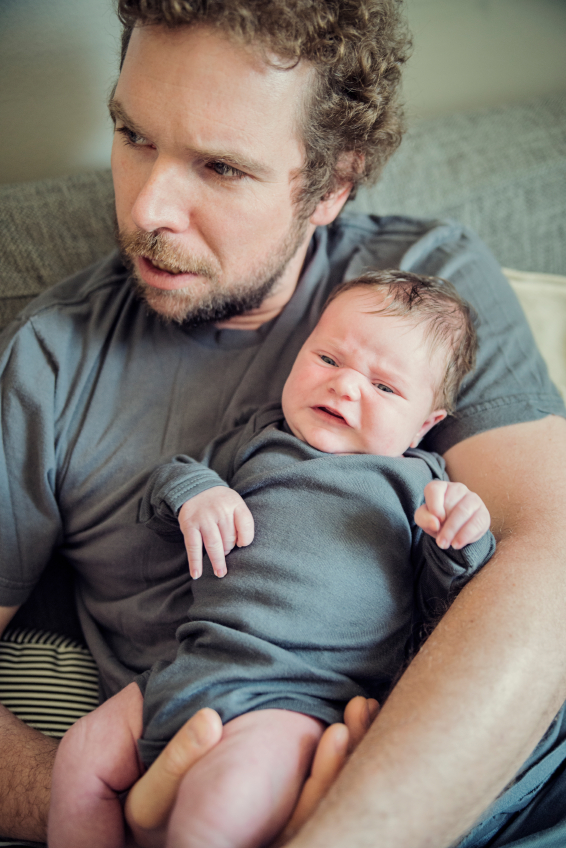 New parents are anxious. And according to research, they are getting more and more anxious. I often hear cases of mums unable to sleep because they are terrified. Terrifed that their babies aren’t breathing. Terrified that the room is too hot. Terrified that baby hasn’t fed enough. Terrified that they will damage their baby. Dads are getting postnatal depression too, at rates almost as high as for women. They are scared too. I want to talk about a psychological piece of gold, that can ease anxiety, but that new parents are lacking in our modern lives.
New parents are anxious. And according to research, they are getting more and more anxious. I often hear cases of mums unable to sleep because they are terrified. Terrifed that their babies aren’t breathing. Terrified that the room is too hot. Terrified that baby hasn’t fed enough. Terrified that they will damage their baby. Dads are getting postnatal depression too, at rates almost as high as for women. They are scared too. I want to talk about a psychological piece of gold, that can ease anxiety, but that new parents are lacking in our modern lives.
Containment is a psychology term that basically means; the process of stopping anxiety from bouncing around the room. Containing situations and emotions is something that all good parents do (and therapists too). It’s not easy to explain, but I’ll give you an example of when containment is NOT happening. My son may come to me in a flap because his friends have said to him (in a flap) that he has to start job hunting now, because a teacher said to his friends (in a flap) that jobs are very competitive and they need to take this seriously and start job hunting now. I can continue the flapping by saying “what? Are you serious? Now? That’s crazy. Can it really be that bad? Oh my goodness, I don’t know what we are supposed to do with that information, it’s a crazy world out there”. And in my exasperation, I tell my friends, who are also parents, and pass the flapping on. The anxiety continues down the line, because no one has contained it.
Or, as a parent, I can provide some containment. In doing so, the anxiety disperses. I do this by “containing” my own feelings of exasperation or anxiety, and I can calmly and warmly say “honey, that sounds very pressurising, I can understand that you’re worried (empathy). But you know what? It’s going to be fine, because you have at least a year before you need a job, you’ve already got a great CV, and I’m going to help you get yourself sorted. Shall we take a look this week-end?” He relaxes, and the “containment” goes back down the line, because he tells his mates “actually, we do have a year, and we’ve got our CVs done already, and I’m not worried about it” and so on. Containment kills anxiety.
I was watching an episode of the British Sitcom “On the Buses” recently. It’s an amazing watch, because it is a rare glimpse into social history. It is set in working class London, in the early 1970s. It is clear, watching this, that it was normal to go through your first pregnancy, birth and babyhood, whilst still living with your parents. This was common before the 1970s, because newly weds couldn’t afford their own house. In one particular episode, a pregnant woman and her mother were chatting about the baby in a tiny kitchen, which serves as a wash room and a living room all in one. The pregnant woman was expressing anxieties about becoming a mum. The mother’s mother responded with something along the lines of “I’ll be ‘ere anyways, so you ain’t got narfin’ ta worry abart” (I made that bit up, I can’t remember exactly what she said). She was replying with reassurances, in a tone that kind of said “I totally get why you’re anxious, because I was” (empathy) and added “but really, it is so easy to look after a new baby, that you have nothing to worry about”. She was nonchalant, but empathic too, and containing.
Nowadays, new parents go home to their own house when they have their baby. And they don’t really want the mother in law around too much. And they don’t want her advice, because advice has changed so much. So they go home and do it themselves. Here-in lies the danger: What they don’t realise is, they have no-one to contain the anxiety. This is critical, but overlooked. Hazel Douglas defines containment as being “when one person receives and understands the emotional communication of another without being overwhelmed by it, processes it and then communicates understanding and recognition back to the other person. This process can restore the capacity to think in the other person.” Thus, it is a powerful tool for helping the person become unstuck from paralysing anxiety, to help them become functional again, to “think” again. Because, you know what? Working out what to do when a baby cries, learning how to pick up a baby, rock a baby, feed a baby, change a baby, keep it alive, is quite a big task when you are new to it.
And when there is no-one around to contain the anxiety in the middle of the night, it all gets a lot more stressful. And if you are scared and anxious, you are passing that on to your baby. Your baby picks up on “something is the matter”. So your baby is more likely to cry. So it gets worse. What you need, is someone to come in and contain the situation. Some-one who has done it before, who can calmly, empathically and warmly turn the situation around with one look and one smile. She sprinkles magic fairy dust into the room, just like a real life fairy godmother. Who is going to do that for you? Traditionally, it would have been mothers, sisters, midwives or aunties.
Nowadays, fathers are courageously trying to fill this gap. They are mucking in with the night time nappy changes and the job of caring for the baby. That, in itself, is a big job if you’ve never done it before. But dads, you have an extra job. You are also there to support the mother, so that when she is crying on day three of the baby blues, you can hold her in your arms and tell her that you love her. All very well, but can you tell her, knowingly, that it’ll be okay? Can you tell her, from experience, that it’ll pass? Can you tell her, and feel, that you are calm and strong and capable of handling all of this? Can you contain the situation?
Probably not. Because you have never done this before, either. You are tired from the birth too. You are on unknown, scary territory. You haven’t got the benefit of wisdom and experience on your side. You need some-one to come in and say to you “it’ll be okay, hold her in your arms, tell her you love her, let her cry all over you, you are doing an amazing job by just being there for her”. Dad needs containment too, so that he can be there for the mother. The mother needs containment so that she can be there for the baby.
So, how can you build in the psychological gold nugget that is “containment” into your postnatal birth plan? Well, you haven’t got time to wait for the NHS to provide it in the form of regular midwife visits postnatally with continuity of care, so you need to do it yourself. Think about which members of your family help you feel safe, nurtured, and cared for. Bring them in to help. Ask them to move in! If no-one is available, think about paying for this kind of help. Lactation consultants, postnatal doulas, night nurses, private midwives, all do a fantastic job. Postnatal doulas are not expensive. They are trained in all aspects of new parenthood, and they are exceptional at taking care of your needs so that you can take care of your baby. This will take the pressure off the father too, so that he can remain strong, and enjoy the process.
Think twice before you spend your money on a travel system, or on pretty wall paper with matching bedding. Think about your emotional wellbeing before your physical wellbeing, and you, your partner and your baby can thrive as early as possible in your incredible journey as that most precious thing in the world: creating your very own family.
 Mia Scotland is a Clinical Psychologist and author specialising in the Perinatal Period. See her website at www.yourbirthright.co.uk or buy her book, Why Perinatal Depression Matters from Pinter and Martin.
Mia Scotland is a Clinical Psychologist and author specialising in the Perinatal Period. See her website at www.yourbirthright.co.uk or buy her book, Why Perinatal Depression Matters from Pinter and Martin.